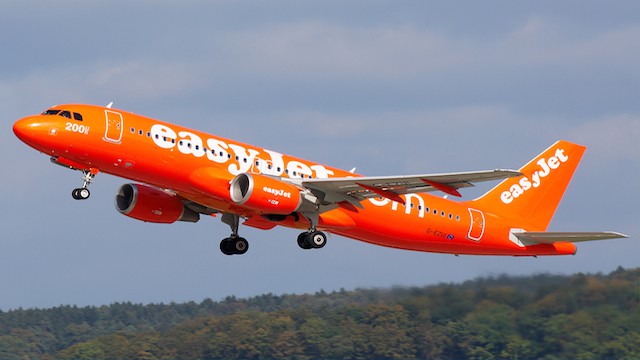I won’t be the only investment writer scribbling that easyJet (LSE: EZJ) is ‘flying’ after today’s results. The budget airline’s share price is up more than 5.5% in early trading, despite printing a 17.3% drop in its headline pre-tax profit for the year to 30 September, from £494m to £408m.
Take it easy
Markets were in an unusually forgiving mood because the drop in headline profits was within guidance, and reflects the adverse £101m impact of currency swings. Investors know this has been a tough time for the industry, due to terror attacks, Brexit uncertainty, tough competition and subdued demand, and see the figures as “demonstrating the resilience of easyJet’s business model”, as today’s report puts it.
There were some positive figures too, with a record 80.2m passengers, up 9.7% year-on-year, and record load factor at 92.6%. Markets will also have liked this: “Strong cost control, driven by increasing benefits of scale and stronger network positions, along with Lean savings of £85m offsetting inflationary pressure in the market.”
Jetting off
The bankruptcies of Monarch Airlines, Alitalia and Air Berlin have reduced competition and easyJet has picked up part of Air Berlin’s business. Throw in a strong balance sheet and net cash position of £357m, and it looks nicely placed for better times. The proposed dividend of 40.9p per share is in line with the company’s policy of paying 50% of headline profits after tax. City analysts reckon EPS will bounce 17% next year, which adds to my sense of optimism, while the forecast yield is a decent 3.2%, covered twice. easyJet has been flying high for some time now.
New direction
CEO Carolyn McCall leaves easyJet for broadcaster ITV at the end of this month and coincidentally another company reporting today, Compass Group (LSE: CPG), is about to lose its CEO Richard Cousins. Markets are less enthusiastic about his farewell set of final results, with the stock down around 3.5% despite a 5.6% rise in underlying operating profit to £1.7bn, with underlying revenues up 4% to £22.9bn.
The world’s largest contract caterer saw operating margins rise 20 basis points to 7.4% which may not sound much, but keeping a lid on operating expenses is essential in a company with more than half a million employees across thousands of sites. EPS rose 5.7% to 72.3p a share, while the annual dividend was lifted 5.7% to 33.5p.
Remote control
North American organic revenues grew 7.1% but numbers elsewhere were less impressive, with just 1.6% growth in Europe and a 2.5% decline in the rest of the world. However, that partly reflects the restructuring of its Offshore & Remote business, hammered by the 2015 commodity crash.
Cousins reported an encouraging pipeline of new contracts and said the group remains excited about “significant structural growth opportunities globally and the potential for further revenue growth, margin improvement, as well as continued returns to shareholders”. Over the last year it has returned £1.6bn to shareholders via ordinary and special dividends and share buybacks.
This unsung hero has blown the FTSE 100 away lately. City analysts are pencilling in another 7% EPS growth next year but my biggest concern is that the stock trades at a pricey forward valuation of 22.1 times earnings. The forecast yield is low at 2.1%, but well covered and progressive. You may want to wait for a market dip.








